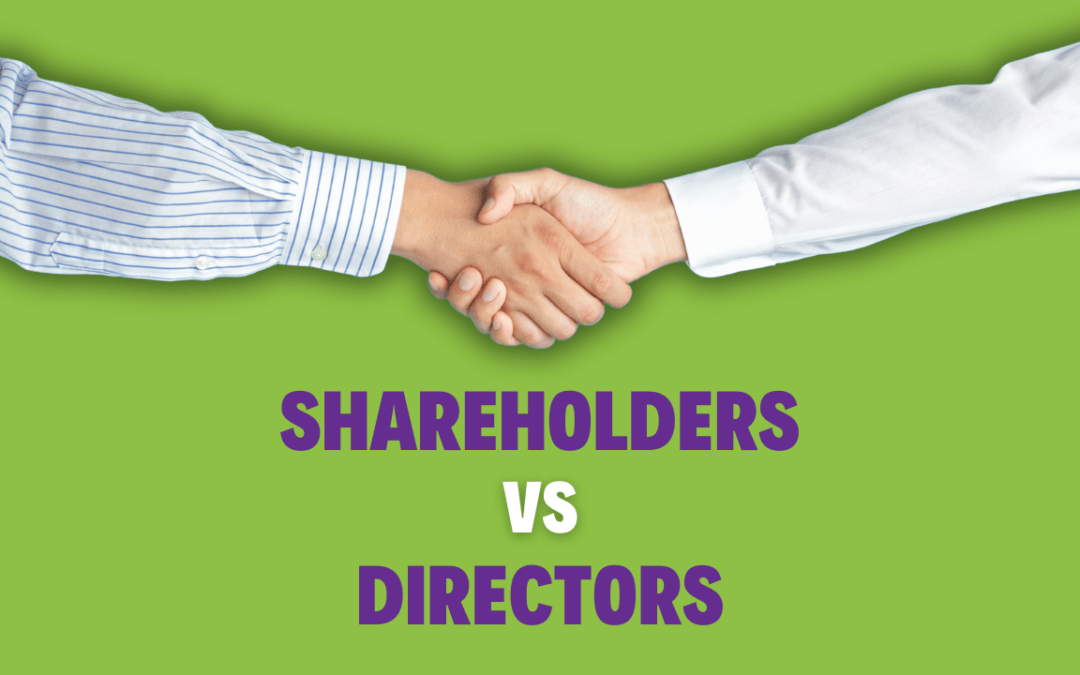Shareholders and directors both play crucial roles in a company, but they have distinct responsibilities and powers. Understanding these differences is key to managing a business successfully.
The differences between shareholders and directors
Think of shareholders as the owners of a company. They hold “shares,” which are like pieces of the company, and they profit when the company does well. The more shares they own, the bigger their slice of the pie. But they don’t run the day-to-day business.
Directors, on the other hand, are like the managers. They’re in charge of making the big decisions and ensuring the company operates properly. They have the power to make choices about how the business is run. But they don’t actually own the company unless they’re also shareholders.
Why does this distinction between shareholders and directors matter? Mixing up these roles can lead to confusion, and even conflicts, especially in smaller companies where people sometimes wear multiple hats. By understanding who does what, a business can run more effectively and avoid stepping on toes.
To learn more about these differences, click the link below to check out my video for a deeper dive into this topic.
Conclusion
Understanding the roles of shareholders and directors is like having a clear roadmap for how a company operates. Shareholders bring the financial backing and act as owners, while directors handle the strategic and day-to-day management, steering the company toward its goals. Each role has its own responsibilities, powers, and legal duties, and each contributes to the company’s success in its own way.
Take control of your business finances with Budgetwhizz®. It makes keeping track of your cash flow and financial planning easier. It helps you stay organised so you can focus on what matters to you; the creative work and the impactful change. Take a step away from the chaos with fast setup & easy navigation – numbers just got real…for the better! Get organised & make sense of it all with Numbers Knowhow® today!
Plan it. Do it. Profit.
